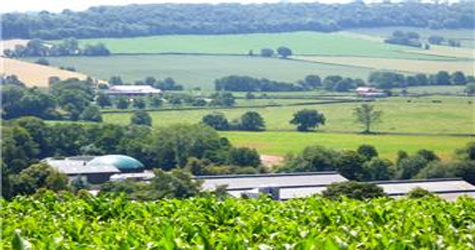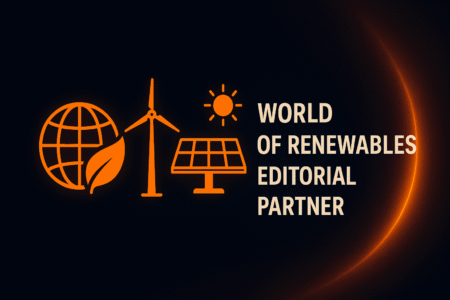Great Ynys Farm will use poultry power to become more eco friendly and generate a new income stream as a renewable energy generator.
The Hereford-based farm, which has 125 acres of arable land and a 90,000 broiler chicken operation, will use anaerobic digestion (AD) to convert chicken litter into biogas for renewable electricity and heat generation.
The green electricity will power the poultry houses and AD system, with a 90% surplus sold to the National Grid, while the captured waste heat will provide warmth for the chicken houses – displacing costly fuel oil and propane gas. Generation is scheduled to begin on 1 August 2011.
The farm’s new green power company – called Ynergy Ltd – has contracted biogas generation experts ENER-G and biogas plant manufacturer PlanET Biogastechnik for project delivery. Ground works were carried out by local contractors JJ Stanley and concrete tank construction by the Yorkshire-based company Galglass. Triangle Ltd supplied the low voltage electrical Panel.
The AD system will have capacity to process 700 tonnes of poultry litter and 1000 tonnes of cattle slurry, mixed with 3000 tonnes of maize silage per annum. Use of maize reduces nitrogen levels in the digestion process and prevents the build up of high concentrations of ammonia that would arrest biogas production.
The ENER-G combined heat and power system will provide 250kW of electricity, sufficient to power 450 homes, and 200kW of heat. This renewable energy source will qualify for financial payments from the government’s Feed in Tariff and Renewable Heat Incentive programmes – providing 14 pence per kW on all electricity generated and 6.5 pence per kW for the captured heat that is used on site.
Plans are in place to convert the heating system in the farm’s broiler houses within the next few months, to utilise heat from the biogas generation process. This is expected to achieve payback on investment within one year.
The digestion process also produces a residue of 5000 cubic metres of odourless organic liquid fertilizer that will be injected into the soil to provide an enhanced nutrient source for the maize crop.
The farm currently uses its poultry litter as a fertiliser, but by digesting it, methane losses to the environment during spreading will be eliminated. A new poultry litter store has been created to protect the AD feedstock from the elements and prevent the risk of nitrate run-off and leaching into the soil.
Susan Shakesheff, Director of Ynergy Ltd, said “We are proud to be at the forefront of the move to anaerobic digestion, and to improve our sustainability, and energy self sufficiency, while securing a new income stream. We are able to find a superior alternative for utilising our chicken litter and are helping neighbouring dairy farmers to recycle their cattle slurry.
“We have excellent delivery partners in ENER-G and PlanET Biogastechnik, who both provide us with a modem link to their 24/7 monitoring operations, giving us full visibility of system performance and efficiency data. The ongoing maintenance agreement with ENER-G and biological support from PlanET Biogastechnik will maximise efficiency to achieve the fastest possible pay back on our investment.”
UK-based ENER-G (www.energ.co.uk) is urging the farming and land owning community to take advantage of government financial incentives for anaerobic digestion, including Renewable Obligations Certificates, Feed-in-tariffs, and the Renewable Heat Incentive, which is expected to be introduced on 30 September 2011.
“AD is a viable and proven technology that is key to improving the sustainability of agriculture and helping rural businesses to diversify,” said Scott Tamplin, Business Development Manager-AD for ENER-G Natural Power. “The government claims that AD could produce 7.5 per cent of the UK’s renewable power by 2020 and I would urge farmers and landowners to consider the commercial benefits, while helping to hit national targets on carbon emission reductions.”
UK-based ENER-G has considerable experience of building, operating and financing major biogas projects across the UK and Europe. The company is expanding its experienced team of specialist engineers to meet growing demand for methane-rich biogas projects, such as AD.










